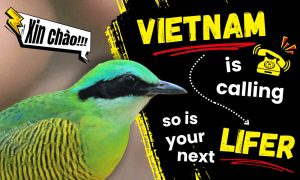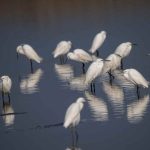Sherrida Woodley’s Quick Fall of Light is based on an intriguing premise – what if the extinction of the Passenger Pigeon was somehow linked to the 1918 influenza epidemic? What if, in turn, the discovery that the species was not truly extinct held the key to saving humanity from another, even more devestating flu outbreak? As a basis for a near-future adventure, it seems hard to beat.
Well, I love speculative fiction and I love extinct birds and I love extinct birds that turn out not to be extinct the most. So I had high hopes for this novel.

Unfortunately, Woodley lost me right away. The structure of the novel — multiple characters, at first unknown to each other, pursue paths that are destined to eventually intersect as part of the plot’s resolution — is a common one, especially in mysteries and thrillers. To my mind, it almost never works. It takes a skilled hand to make the characters and threads equally compelling, and if they are not, the book feels unbalanced. On the other hand, plenty of people seem fine with this structure, else it wouldn’t persist. So I will only say that it made me infavorably disposed towards the book, and you can draw your own conclusions.
Worse, I struggled with the characters. I could never get a handle on what Josie — the protagonist, recently widowed — ever saw in her remote, adulterous, obsessive ornithologist husband. And I’m hardly a fan of multinational corporations and their destructive profit-driven shenanigans in the face of global disaster, but even to me, the chief heavy Elsa seemed like a caricature. Her foil, a jet-setting hitman, is thoroughly unlikeable — plausible enough for a hitman, except that I think he was supposed to be coming off as more roguish and less peevish.
But what of that? This is a book that people come to for the plot and the science. I can’t really fault the former, although the dual-threaded narrative sucked out a lot of potential tension and my inability to buy the characters made it hard to care when they were in peril. The latter… I wanted so badly to like it, but the survival scenario for the Passenger Pigeons is implausible on its face. All actual captive breeding efforts failed for a reason, after all. On top of this, it’s not enough that they merely miraculously survived — instead they have become super-pigeons, with the bird that is key to the plot manifesting borderline psychic tendencies as well as an intelligence that overshadows the merely human characters. This, I am sorry to say, broke the book for me. I’m ok with fantasy, but not with pseudo-science.














Dear Carrie:
Lots has been said of Quick Fall of Light. A hard stretch for many birders and naturalists, the story unfolds through a series of “disbeliefs,” just as you suggest above. I don’t doubt a reader’s questions at times. But staying true to my longings, I created a bird less believable and more a creature of “other world” ability. This was my single tribute to a bird maligned, at times in our history almost forgotten. The other characters, the human ones, were swept into its world through disease and a global catastrophe. There was no attempt to re-create science here and only a hint of science fiction. Quick Fall of Light looks at what can never be resolved in this world, yet happens every day. . . the extreme longing to see extinction reach some other conclusion. For that reason alone, I’ll always believe the novel was worth writing. I thank you, Carrie, for your thoughts and posting a review on 10,000 birds.
Sherrida